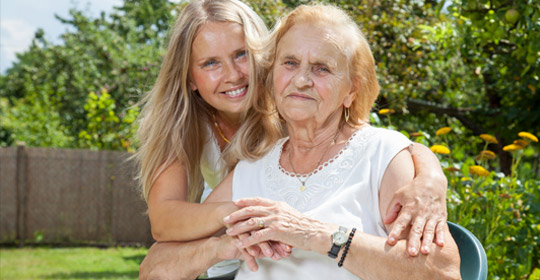Nearly a third of Hawaii’s population is living with prediabetes or diabetes, affecting one in every three people, according to the American Diabetes Association. As the seventh leading cause of death in the islands, it’s important to understand that caring for someone with diabetes, much less an aging loved one, requires special attention and consideration.
If someone you care for has developed or is at risk of developing diabetes, it’s important to know how best to support them. Diabetes can make life complicated but you can make a big difference in how your loved one copes, so consider these simple caregiving tips:
Educate yourself
In order to provide the best care for your loved one, it helps to understand exactly what diabetes is and how it will affect their long-term health and day-to-day life. It’s advisable to speak to a physician as they will have valuable information on how to safely and effectively manage the disease.
Communicate with your loved one
Diabetes affects everyone differently. After speaking with a doctor, sit down with your loved one to discuss what lifestyle changes need to occur. Of course, some changes will be more challenging than others, so identify what you can do to encourage them and help them meet those goals. It’s important to note that their needs will change as time goes on, so keep this an ongoing conversation.
Make changes together
Habits are hard to break and changes—however small—can be daunting to undertake alone. Support your loved one by making those changes as a team, whether its exercising more, cooking diabetes-friendly meals, or quitting cigarettes to keep cholesterol and blood pressure levels down. Plus, it will go a long way minimizing your risk of developing the disease.
Create a support team
With increased doctor’s appointments, physical activity, and special meal preparation, caring for a loved one with diabetes may require more hands on support than you have time for. Enlist the help of other family members or friends, or consider hiring a caregiver to provide in-home care.
If your family could benefit from home care services, contact Home Care by ALTRES Medical. We offer free consultations and assessments, and we’ll even develop a customized care plan for your loved one.
This article is for general health purposes only and does not constitute medical advice nor is it intended to diagnose health problems. Readers should first consult with their physician or health care provider before acting upon any information in this article.


Nearly a third of Hawaii’s population is living with prediabetes or diabetes, affecting one in every three people, according to the American Diabetes Association. As the seventh leading cause of death in the islands, it’s important to understand that caring for someone with diabetes, much less an aging loved one, requires special attention and consideration.
If someone you care for has developed or is at risk of developing diabetes, it’s important to know how best to support them. Diabetes can make life complicated but you can make a big difference in how your loved one copes, so consider these simple caregiving tips:
Educate yourself
In order to provide the best care for your loved one, it helps to understand exactly what diabetes is and how it will affect their long-term health and day-to-day life. It’s advisable to speak to a physician as they will have valuable information on how to safely and effectively manage the disease.
Communicate with your loved one
Diabetes affects everyone differently. After speaking with a doctor, sit down with your loved one to discuss what lifestyle changes need to occur. Of course, some changes will be more challenging than others, so identify what you can do to encourage them and help them meet those goals. It’s important to note that their needs will change as time goes on, so keep this an ongoing conversation.
Make changes together
Habits are hard to break and changes—however small—can be daunting to undertake alone. Support your loved one by making those changes as a team, whether its exercising more, cooking diabetes-friendly meals, or quitting cigarettes to keep cholesterol and blood pressure levels down. Plus, it will go a long way minimizing your risk of developing the disease.
Create a support team
With increased doctor’s appointments, physical activity, and special meal preparation, caring for a loved one with diabetes may require more hands on support than you have time for. Enlist the help of other family members or friends, or consider hiring a caregiver to provide in-home care.
If your family could benefit from home care services, contact Home Care by ALTRES Medical. We offer free consultations and assessments, and we’ll even develop a customized care plan for your loved one.
This article is for general health purposes only and does not constitute medical advice nor is it intended to diagnose health problems. Readers should first consult with their physician or health care provider before acting upon any information in this article.